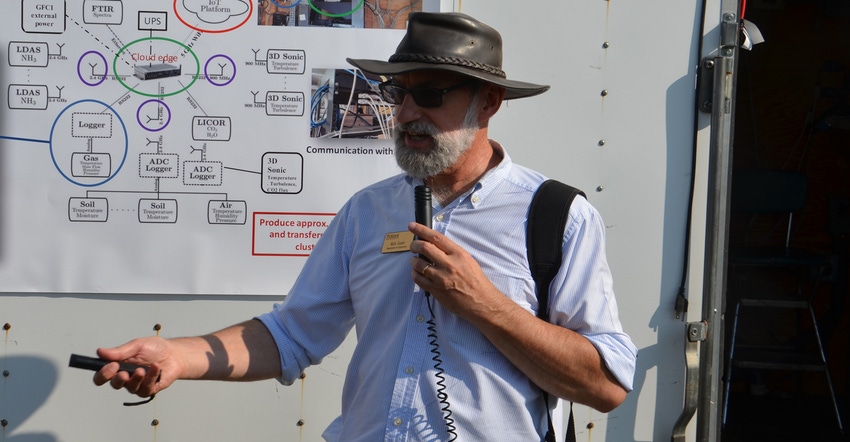
Wabash, Ind., was the first electrically lit city in the U.S. Electric lights arrived around 1880, yet by 1920, only about 10% of rural Hoosiers could access electricity. Johnny Park likens that to data collection in agriculture today. And he doesn’t want farmers and agribusinesses to wait 40 years to reap benefits of digital technology.
Park, CEO of the Wabash Heartland Initiative Network, referenced the electricity analogy in the September official WHIN Lilly Endowment Report. The five-year initiative got underway in 2018. Here’s a closer look at the project. Dennis Buckmaster, a Purdue University agricultural engineer and a technical lead for the agricultural portion of the project, explains how WHIN originated and reports on successes and challenges:
The project. WHIN was initiated through a $38.9 million Lilly grant to enhance community development in 10 counties making up the Wabash Heartland corridor. They include Benton, Fountain, Warren, White, Pulaski, Tippecanoe, Cass, Carroll, Clinton and Montgomery counties. Key partners include Purdue, Ivy Tech and the Community Foundation of Greater Lafayette. Many other groups, businesses and farmers support the project.
3 components. Three initiatives center around developing infrastructure and data analysis necessary to make information gathered during the era of “the internet of things” practical, Buckmaster explains. The goal is to explore ways to develop and implement technologies in these three areas while engaging farmers and community members.
The areas are digital agriculture, next-generation manufacturing, and regional cultivation and implementation of ideas coming from the process.
UAV piece. John Scott works full time helping implement the objectives of WHIN for agriculture. One early piece was bringing farmers up to speed on unmanned aerial vehicles for data collection, including offering pilot certification courses through Purdue Extension. Some 18 Extension educators across the state have UAVs for demonstration purposes through a Purdue Extension program. Check out a bevy of UAV images, including many crop health images, at extension.purdue.edu/uav.
Another part of the UAV challenge involves learning how to turn images into digital data and figuring out how to cover more acres per flight with UAVs. This mission dovetails with efforts underway at the Corn and Soybean Innovation Center at Purdue to learn more from UAVs.
Test beds. The Purdue Agronomy Center for Research and Education is one test bed for UAV development, and for work with plant and soil sensors, Buckmaster says. Work is also underway at the Throckmorton Ag Center. Meanwhile, Chad Martin heads up efforts for digital ag on the Ivy Tech Research Farm at the Lafayette campus.
“Right now, it’s about learning about practical ways to collect reams of data about weather, crops and soils through sensors,” Buckmaster says.
Transferring and managing data. Here’s where more questions than answers arise, Buckmaster notes. How do you transfer tons of data from fields to computers, either from UAV flights or ground-based sensors, and do it quickly? So far, they’re experimenting with FarmBeats, a data management system developed by Microsoft. They’re also exploring whether it’s possible to use ISO-BLUE, an open-source telematics method using Bluetooth, to transfer data.
Education. Both Purdue and Ivy Tech are developing new classes to prepare today’s students for tomorrow’s agriculture. Purdue developed a certificate program for digital training and recently added digital technology as a recognized minor area of study for Purdue ag students, Buckmaster says.
About the Author(s)
You May Also Like




